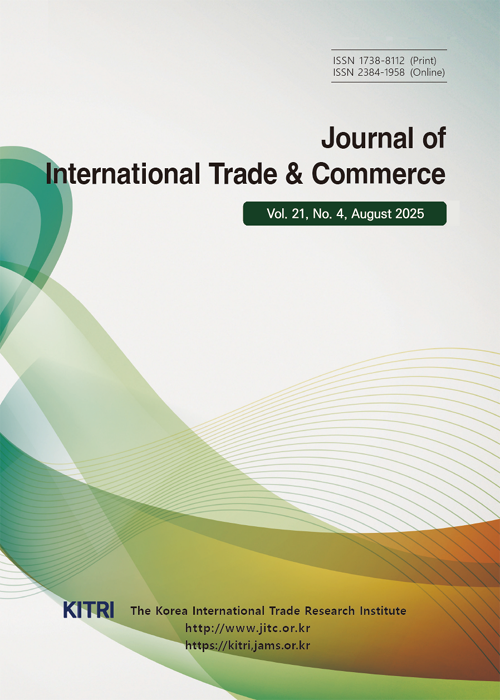학술논문
The Relationship between the Characteristics of the Logistics Platform, Information Sharing, and Logistics Performance
이용수 20
- 영문명
- 발행기관
- 한국무역연구원
- 저자명
- Young-Kyou Ha Chang-Joon Lee
- 간행물 정보
- 『무역연구』제21권 제4호, 55~72쪽, 전체 18쪽
- 주제분류
- 경제경영 > 무역학
- 파일형태
- 발행일자
- 2025.08.31

국문 초록
Purpose - This study investigates the impact of logistics platforms on overall logistics performance by examining three critical dimensions: technical, organizational, and environmental. With the expansion of global trade, digital transformation, and increasing complexity in supply chain networks, the demand for advanced logistics solutions such as logistics platforms has become essential. These platforms can enhance visibility, coordination, and responsiveness across supply chain stakeholders.
Design/Methodology/Approach - An empirical analysis was conducted using survey data collected from 240 employees engaged in supply chain-related roles in Korea. The measurement items were developed with input from logistics professionals and academic experts to ensure both practical relevance and theoretical rigor. The data were analyzed using structural equation modeling to identify the relationships among the variables.
Findings - The results reveal that the technical and organizational characteristics of logistics platforms significantly improve information sharing among stakeholders. In contrast, the environmental dimension, when well established, naturally facilitates information sharing without the need for additional efforts. Furthermore, enhanced information sharing leads to improved logistics performance in terms of efficiency, responsiveness, and service quality.
Research Implications - This study contributes to the understanding of logistics platform adoption by highlighting the integrated effects of technical, organizational, and environmental factors. The findings provide valuable insights for logistics practitioners, platform developers, and policy makers seeking to support digital transformation in supply chain management.
영문 초록
목차
Ⅰ. Introduction
Ⅱ. Theoretical Background
Ⅲ. Hypothesis Setting and Research Model
Ⅳ. Empirical Analysis
Ⅴ. Conclusions
References
키워드
해당간행물 수록 논문
참고문헌
최근 이용한 논문
교보eBook 첫 방문을 환영 합니다!

신규가입 혜택 지급이 완료 되었습니다.
바로 사용 가능한 교보e캐시 1,000원 (유효기간 7일)
지금 바로 교보eBook의 다양한 콘텐츠를 이용해 보세요!



